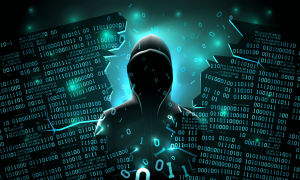Phone phreaking, the practice of manipulating telecommunication systems to make free calls or access restricted services, emerged in the 1960s as a form of technological exploration and subversion. This activity, while often rooted in curiosity and technical prowess, sparked a complex web of legal and ethical issues. Initially, phreakers used a variety of techniques, including modified telephones and electronic devices, to exploit vulnerabilities in the analog telephone network. These early phreakers, such as the infamous Captain Crunch and other pioneers, were motivated by a blend of intellectual curiosity and a desire to challenge the constraints imposed by telephone companies. The legal implications of phone phreaking were profound. In the United States, the Communications Act of 1934 and its subsequent amendments aimed to regulate telecommunication practices and protect the integrity of communication networks. Phreaking, however, often violated these regulations, leading to legal challenges.

For example, in the 1970s, the FBI and other law enforcement agencies began targeting phreakers as part of a broader effort to curb what they perceived as serious threats to national security and economic stability. High-profile arrests and prosecutions, such as those resulting from Operation Sun Devil in the late 1980s, highlighted the legal risks associated with phreaking. These actions were justified under laws designed to protect communication systems from unauthorized access, but they also raised questions about the balance between law enforcement and personal freedom. Ethically, phone phreaking occupies a contentious grey area. On one hand, phreakers often considered their activities as a form of civil disobedience or a challenge to monopolistic practices of telephone companies, which were seen as exploiting their customers. This perspective framed phreaking as a form of resistance against corporate control and an exercise in technological innovation. On the other hand, the potential for abuse and the financial impact of phreaking on both service providers and other customers complicates this narrative. For instance, while some phreakers used their skills for harmless pranks or to explore the technology, others exploited these capabilities for financial gain, contributing to significant economic losses for telecom companies and affecting the quality of service for legitimate users.
The ethical debate around phone phreaking history also intersects with broader discussions about technology and privacy. Phreakers were among the first to confront issues related to unauthorized access and data privacy, raising questions that remain relevant today. The techniques and mindset of early phreakers influenced subsequent generations of hackers and cybersecurity professionals, contributing to ongoing discussions about the ethical use of technology and the boundaries of legal versus illegal behavior. In conclusion, the legal and ethical implications of phone phreaking illustrate the complexities of technological innovation in a regulated environment. While phreakers pushed the boundaries of technology and challenged established norms, their activities also highlighted the need for clear legal frameworks and ethical guidelines in an era of rapid technological advancement. The legacy of phone phreaking serves as a reminder of the ongoing tension between exploration and regulation, and the continuous need to navigate these challenges as technology evolves.